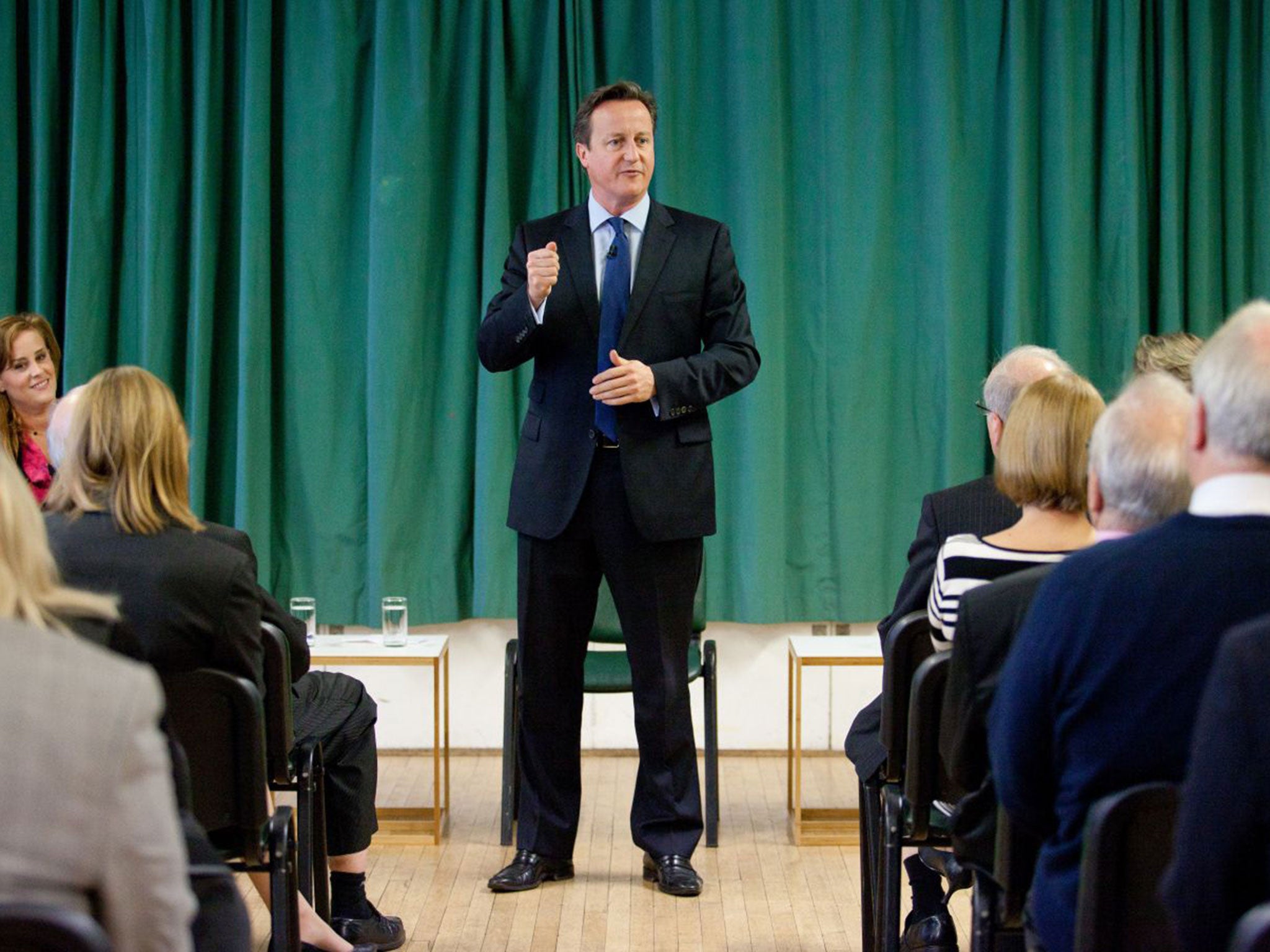Why David Cameron can't speak up for migration
A leadership challenge has been mooted, with Owen Paterson cast as stalking badger


David Cameron is throwing everything at the Rochester by-election, to be held in a month's time. After Douglas Carswell's emphatic win in Clacton, for the Conservatives to hold a seat against a second defector to Ukip, Mark Reckless, would be a great triumph. I don't think it is likely. By-elections were the voting equivalent of posting rude anonymous comments on the internet long before the internet was invented.
Partly because the Prime Minister takes this by-election so seriously, some people have been hit by a bad case of inflated rhetoric. It has been suggested that, if the Conservatives lose, Cameron will face the apocalypse, or at least a leadership challenge, with Owen Paterson, the right-wing former environment, food and rural affairs secretary, cast in the role of "stalking badger". Never mind that the Conservative leadership rules have changed since 1989, when Sir Anthony Meyer required only two other MPs to nominate and second him to mount a token challenge against Margaret Thatcher. There is no available leader who offers the Tories the hope of doing better in the election than Cameron. Only Boris Johnson could conceivably claim to appeal to voters left cold by the Prime Minister – and he is not yet an MP.
The expectations game in Rochester will change. Michael Ashcroft, the former deputy chairman of the Tory party who now spends vast amounts on opinion research, will continue his service to democracy. He and other polling companies will publish surveys that will show Reckless even further ahead than the nine-point lead he held in a Survation poll taken a few days after his defection.
By the time the by-election happens, Reckless's victory will be old news. But in the meantime it makes sense for Cameron to go flat out. He has gone for an open primary election to choose the Conservative candidate. This is a popular, anti-politics idea. Anyone in Rochester and Strood can vote for Kelly Tolhurst or Anna Firth, two local councillors who seem to have been vetted within an inch of their lives. Reckless, who claims to support open primaries, has not troubled to subject himself to one, and hopeful Tory canvassers claim that Rochester's voters don't like the £250,000 of taxpayers' money his by-election is costing them.
Then the Prime Minister is trying to meet the grievance behind the Ukip surge. Last week he brought forward the start of his renegotiation of the terms of UK membership of the European Union, making his opening bid in a speech in the constituency saying he would have "one last go" to secure "more effective control of migration".
There is nothing ignoble about this. A common liberal view is that he is stoking anti-immigration sentiment by trying to appease it, and that, by promising things he knows he cannot deliver while Britain remains in the EU, he is taking the country closer to the exit. But one thing that would really take us closer to leaving the EU would be that advocated by many EU supporters. This is to "make the case for immigration". It may be that, on balance, free movement of EU workers is in our interest as a country, but there is no use simply asserting it if that is not how people see it.
It is interesting that in our ComRes poll today, support for free movement has risen from 23 per cent to 36 per cent since last year, although more people, 46 per cent, are still opposed to it. In the long view, the tide of opinion on Europe may be turning, but in the meantime attitudes towards immigration are a big part of people's alienation from the mainstream political parties.
That is why Cameron and Ed Miliband are right to look at ways of restricting free movement within the EU. As David Goodhart explains today, there are changes to the rules that a British government could negotiate.
Ukip, equally, has been right to observe that all the main parties are committed to EU membership, and that this means they can never control immigration from the rest of the EU absolutely. But it is also true that most voters are reluctant to take the final step of leaving the EU. Even in Rochester, that Survation poll found only a narrow margin, 41 to 37 per cent, in favour of withdrawing from the EU. If it were possible to limit freedom of movement in some way, they would probably vote to stay. That is Cameron's calculation behind his referendum promise.
Carswell and Reckless are quite right in their analysis: they want to leave the EU, and so the Conservative Party is the wrong party for them. But in the wider view, their departure is a sign of Ukip's weakness. The case for leaving the EU is not going to be won. There is more at stake here than a mere by-election.
Join our commenting forum
Join thought-provoking conversations, follow other Independent readers and see their replies
Comments
Bookmark popover
Removed from bookmarks